Jared’s Humanity: An Interview with Nic Stone in Which She Reveals that the
Dear Martin Series Will Soon Be a Trilogy
| Julie Hoffman, Ed.D. (@HoffieCup) is a Literacy and Social Studies Teacher Instructional Leader (TIL) with Springfield Public Schools. She is also an adjunct professor in the Teacher Education Program and the Department of English and Modern Languages at University of Illinois Springfield. She earned her Doctor of Education in literacy from Judson University in 2018. She is currently President of the Illinois Reading Council (IRC). Her research interests include urban education, social and emotional learning, young adult literature, poetry, and empathy. She believes that children’s literature and poetry can be a message of perseverance and hope and believes that we thrive when we invest in ourselves and others. |
The Conversation with Nic Stone
NS: I mean, there’s no such thing for me. I started writing shortly after my first son was born. The lesson there was like, you’re going to write when you can. So, one of the best things that I gained from the time in my life, during which I started writing, was the ability to write anytime, anywhere. It's never smooth. Of course, there are times where you hit flow, or whatever. But in a very general sense. I think the key to success with writing is being okay with writing badly initially. So, if I am sitting at Starbucks, and everything [I write] is bad, that’s okay. That's what revision is for. I would write while nursing a kid. I would write during the little 30-minute nap time. Whenever I could, I would pick up my computer. You train your brain to be able to do that.
JH: Do you have a 2000 word a day kind of thing?
NS: Absolutely not.
JH: Or do you just have a rule for yourself like, “I need to write. If I write just a little bit today, I’m good, and if I write a lot today, I’m good”?
NS: Yeah, I mean, it varies. I think fluidity, when it comes to doing something like this, is going to be your most valuable asset. There will be days where it's like, “Hey, I have time to knock out, you know, 1700 words, or, I have time to do a whole chapter. So, there are days where I'm like, “Okay, my goal for today is to write a full new chapter or to revise a couple of chapters, or you know, etc.” And then there are other days where I'm like, “I wrote a whole sentence! I am crushing it!” And I will say initially, when I first started writing, the goal was just writing what I could. When I first started writing, I'd land around, you know, 2000 to 2500 words a day, but I haven't written to that 2,500 words in a single day in a long time, and that's okay. And I’m sure there will come a time when I’m killing it and writing 4,000 words a day. It’s just all over the place.
JH: That’s fair.
NS: Yeah.
| JH: So, which book was the hardest to write? And you can decide what you want “hardest” or “most challenging” to mean. NS: I’ll give you two. The most challenging work of fiction was Dear Justyce. That was challenging because of the subject matter. Because I was writing about a kid who is incarcerated. I spent eight months traveling the country and visiting juvenile detention centers, and just collecting stories, talking to the kids who were there, listening more than I talked, asking them questions, and hearing their stories. And so then, it came time for me to sit down and incorporate all of that stuff into the book. In Dear Justyce, any time you read about a kid who is incarcerated, it is pulled from a real story, where I didn't change anything—like no embellishment. I fictionalized a part based on when Philando Castile was killed. His kid was in the backseat. JH: I remember that. NS: So, I took that concept, and there's a kid in Dear Justyce, who struggles, and joins a gang, and is in and out of being locked up because he literally saw his father murdered in front of him. So, just taking the things that I learned and putting those things in that text was very, very difficult. |
| The other title that was super hard was How to Be a Young Antiracist and the reason that was hard is because I couldn’t tell any lies. It's a nonfiction title, so I had to stick with what actually happened. That was hard because, you know, if I'm writing a novel, if the bad guy pisses me off, I just take them out, kill him, right? Take him out in the last chapter or whatever, right? He's not real. But with How to Be a Young Antiracist, I had to stick to the facts. It was challenging, and a little depressing at times. But we got through it. JH: When I read How to Be a Young Antiracist, It was really obvious that you read Dr. Kendi's work, probably more than once, so that you could really get it. Get it the way that a teacher does, like, “I need to understand this so I can teach my kids. Let me learn this, so that I can break it down.” And then you broke it down. In a way where I could comprehend. Teenagers can understand it. Thank you for working so hard on that book. NS: Of course. |
NS: Dear Martin. And the interesting thing is that the kids that I hear that from are typically straight, white, and upper middle-class. There was a kid named _____, who adopted me as his Black auntie. I met him in South Carolina. He was a self proclaimed redneck. He actually texted me one day, just distraught. He was a senior in high school. They had a day where, like, you could represent whatever you cared about, on your vehicle because it was COVID. So, they had a parade with their vehicles. It was like a pre-graduation parade. And so there were like, rainbow flags, there was like a Wakanda flag, etc, etc. And he had his confederate flag. The principal came and took the confederate flag off his car. When he came to me, and shared that, and was just distraught. It made sense, right? And it was one of those moments where, when I first met this kid, he hadn't read Dear Martin. He didn't like to read. But during the presentation, I took this moment where I said, “If any of you have ever been falsely accused of something, raise your hand. Anybody who's never felt like they don't fit in, raise your hand. Anybody who often feels like they're in a place where they don't belong, raise your hand. He raised his hand every single time. Then he came up to me in the signing line, after, and he was like, “You know, I've never met anybody like you before. And I've never had anybody say how I feel so clearly. I'm gonna read your book. And he did.” And so for him to read Dear Martin and still come to me when he had this experience with a confederate flag . . . That's when I knew I was doing something, right. So, I just validated him. Like, I'm not going to give you a lecture about a flag like this is something that means something to you. Just because it means something different to me, doesn't invalidate the fact that it means something to you. You're not out here stringing people up. You're not out here saying mean things about Black people. This is something that in his 17-year-old mind was linked to his heritage. I didn't see it as my place to tell him he was wrong about that. Right? So, when kids who are very different from the main character in Dear Martin come to me, they tell me that the book opened their eyes. It made them feel seen in some way. It made them really recognize that the world isn't fair. For some kids, they might say, “This really made me feel bad.” That's a good thing to me. So, that's, definitely the one. Dear Martin is definitely the one, and it surprises me every time. Every time a kid, especially a white kid in either upper middle class or working class, which is very different from the main character in that book, tells me how that book made them feel, it blows me away.
NS: It is a two-way street!
JH: How has writing for kids, and how has listening to kids, changed you?
NS: In order to write for kids successfully, I discovered very, very early on, that I needed to backtrack and kind of deconstruct a lot of the judgment I had over the things that I thought I felt when I was a kid. There's a quote in, I think it's Harry Potter and the Half Blood Prince, maybe. And in that book, there's a point where Harry and Dumbledore are talking. This might be right before they go looking for an Horcrux or whatever. And Dumbledore says to Harry, basically, “Youth can not know how age thinks and feel, but old men are guilty if they forget what it's like to be young.” And like that one quote, says so much to me, right?
So in interacting with young people, which is such a privilege to me, we get old and crotchety and stupid, if you want the truth. But the way these kids' minds work, yes, I think is brilliant. And then the other piece . . . it's so important for us not to forget how s***** it made us feel when adults looked down at us, and talked down to us, and treated us like we didn't know anything. Most of us are just repeating that cycle without taking the time to stop and think about it. Validate how you felt as a kid, now that you're an adult. You can go back; you can validate your younger self. That is what has helped me the most. And now I'm actually able to learn from the other people in my life. And there's so much to teach us— so much. We just have to be open to recognizing that we don't know everything, especially considering how rapidly the world is changing. Like, there are things that my 11-year-old knows that I just don't know, and that's very uncomfortable. But it's also important for me to acknowledge that and to be open to learning.
NS: I have no idea. No idea. I don't know how any of this works, Julie. Really. That's the crazy part. Right? And I think any author, any author who is honest about the process? Well. We try to sound really smart, like, “I created a template. I created a whole outline. I sit down and I execute.” And I'm like, yes, but even the execution, it’s not always like that. So, I'm working on Dear Manny. I wrote a draft and it just wasn't it, wasn't it wasn't hittin’ and I was like, “This not it.” There was something missing. So I went back and I read Dear Martin. I never read it before. I read Dear Justyce. I've never read that before. And when I finished Dear Justyce, I was like, “How did I do that?” I have no idea. I have no idea how, and I think anybody who is a creative for a living will tell you the same. There's something about our brains, our brains and our bodies, that are constantly in taking stimuli. We are constantly sensorially activated. Our brains are constantly processing stuff that we feel, stuff we see, stuff we hear, and also stuff that we're taking in through language. It's doing stuff that we don't actually have any control over. So, when I sit down and I start writing, and stuff comes out, I can't tell you where it comes from. I have no idea, like cognitively, no idea. I'm just glad it comes. Truly glad.
NS: No.
JH: It's probably gonna come out in like, late March or early April. Is that too soon for the world to know about Dear Manny?
NS: Nah. It’s fine.
JH: Okay. Okay, well then, since it’s gonna be in there, then tell me about it. Tell me about your process. What kinds of things have you been thinking about? Have you actually started writing? Are you researching and just--
NS: Oh, it's written. It's written completely. I'm in revision. The revision is technically due tomorrow, but it's not gonna get turned in on time. It's fine.
JH: True.
NS: So you have this entire demographic of people who is, frankly, not being represented.
JH: Right. And it's not a straight white boy who is trying to play a sport. It's not a straight white boy who is doing whatever the books have always been about. It's a straight white boy who is grappling with his belief system and what he has seen amongst his peers.
NS: In light of his grief.
JH: And what else is going on in the world.
NS: And he's trying to sort all of that out. And he's running up against an individual who looks like him, but believes very differently than he does. So, grappling with that reality is Jared—the main character is Jared. Jared’s conflict in Dear Manny has to do with knowing that he has an unfair advantage when it comes to something, but also feeling like if he doesn't utilize that unfair advantage, somebody else with an unfair advantage, who actually doesn't care about people who are different from the from him, will be able to take over in a way that's going to harm people who are marginalized, right?
So, it's like he's trying to, in his first letter to Manny, he basically talks about how like, “I recognize that this specific thing right here means that I should drop out of this presidential race. However, if I do that, this sole opponent of mine—who is based on Ron DeSantis 100%, like I read the Santos memoir for the sake of writing this character—he gets to win automatically. So, I'm kind of conflicted, like do I do the right thing, which is this thing over here? Or do I do the quote unquote, right thing over here?” And it's really a book about the fact that like, what is the quote-unquote, right thing? Just depends on your perspective. It's all about perspective. It's a book that's all about perspective, and all about value systems, and all about recognizing that like, just because somebody thinks or feels or believes differently from you, it doesn't mean they're wrong. It's just different. The perspectives are different, and that’s okay.
JH: So, remember a few minutes ago when I was asking about if writing for kids has changed you? I want to go to Jared. So, in Dear Martin, at the beginning, he was kind of a jerk.
NS: Girl!
JH: Like when I was reading it, I would get to the point where I'm like,
NS: Oh, here goes this guy again!
JH: Yeah. And he has changed, right? But I'm also hearing how you were saying for his book, you were like, “He will not leave me alone. He will not leave me alone.” I'm sure part of that is that, granted he's a fictional character, but that he's like, “Hey, I've got some growing to do. Can you help me?”
NS: Absolutely.
NS: Yeah, absolutely. I've always been pretty open minded. In my keynote earlier today, I was talking about my dad. My dad is a person who really helped me begin, even at age 10, 1o get a grip on how multifaceted humanity actually is. As individuals we all have a part of us that is forward-facing. That's the part that's like trying to do our best to fit the norms. We're working really hard to make sure we're not doing things that are gonna get us ostracized. We learned this when we're very young. And it's a biological imperative, right? We are a species. We're a social species. There are all kinds of studies—that at this point would be considered unethical—but like back before it was considered unethical, there were studies about feeding babies without touch and how that affects their immune system, how they interact with other children, etc. Turns out we need each other, right. And I've known that for a very long time. The interesting thing is that it's almost as we've gotten older, the Internet has become this thing, and social media is this thing. With social media, you are quite literally only fed things that match what you already believe. That's algorithms. That's what algorithms are all about—giving you what you engage with. So, if you are a person who is only engaging with, you know, progressive ideas if you will, that's all you're ever gonna see. If you're a person who only engages with conservative ideas, that's the only thing you're ever going to see. And we get stuck in these boxes. When really, these boxes are made of dust, and if you just move some of it out of the way, you can see. Yes, there is potential for ruffling the feathers of people who are in the box with you. But there's also potential for just expansion, right? So, when it comes to why I write, how I write, etc.? I’m being expanded by engaging with these other viewpoints. I just love it. For me what makes life worth living is knowledge, adventure, learning, like, experiencing things that I haven't come in contact with yet. That, to me, is stuff that's exciting. And I understand that there are definitely people who just want to stay safe, and that's okay too. But even in wanting to stay safe, it's important to question the things that you've been taught are going to keep you safe. Find out that they actually are.
I hear about book bans happening, and I see this thing on the internet. I think it was posted on Facebook. Basically, there was this permission slip that went out in a Florida school to basically let the parents sign off on the fact that their kid was going to be read a book by a Black author.
NS: I'm gonna give the benefit of the doubt here and just say, okay you didn't do so well with your rhetoric. This is just me being eternally optimistic, but I'm going to say that you were nervous because legislation is giving you the idea that you can’t read books by Black authors? I don't know. But what I will say is that if we reach the point where children are kept from reading books about people who are different from them, we are failing our children. Yeah, the world has changed drastically. Unless you plan to keep your child up under you for the rest of their life, you are setting them up for failure if you do not expose them to what they are going to be in the world.
JH: Welp. Especially because, like for me, books were my source of resilience and hope. I think when we ban a book, when we prevent a book from getting into the hands of a kid who needs that story, we're interfering with their survival. We're interfering with their thriving. We're interfering with their humanity. And that's crazy to me.
NS: Yeah. Another thing that's super fascinating is there's so many people that are like, “Don't be a sheep and let your kids read this stuff.” And I'm like, “But friend, you're being a sheep by not letting your kids read this stuff. Right?”
JH: Right.
NS: So yeah, my thing lately has been trying to figure out how to turn some of this logic on its head and kind of use it to support the opposite set of ideas. Because, friend, what are we doing? What are you so afraid of? That's the thing that I really want people to start asking themselves, because all of this stuff is rooted in fear. And I think for so many people, they haven't actually paused long enough to figure out what it is they're so scared of, to decide whether or not that fear is worthy of their energy. Right? So, it's an interesting time to say the least.
Get Involved with a Nic Stone Book!
NS: Be open to being wrong. It Is the one thing that I would say to teachers, and to adults in general, but specifically to teachers. I think the way that legislation is being shaped right now, the way that people are viewing teachers, it's creating this vortex, if you will, of this desperation to be right. It's like if I'm not right, I'm gonna lose my job, right? But that openness to being wrong and to learning alongside your students that's actually going to teach them more than you having this set lesson plan and everything. All of my favorite teachers were the teachers where I felt like I could be a person and I felt like I could be a person with them because they were willing to admit that they didn't know everything. Dear Martin is dedicated to a man named Casey Weeks. He was my 10th and 11th grade ELA teacher. I had the privilege of having him for two years in a row. And I will never forget. We used to trade CDs. Like. he introduced me to Norah Jones. I introduced him to the Ying Yang Twins. He was so open to the cares, the concerns, the interests, of the actual literal people sitting in the classroom, and that makes all the difference.
JH: What’s your favorite Norah Jones song?
NS: Girl. I don't even remember at this point. That was 21 years ago. I'm usually listening to Migos or 2 Chainz. Wait. “Don’t Know Why” is that a Norah Jones song? [starts singing] When I saw the break of day, I wished that I could fly away . . .
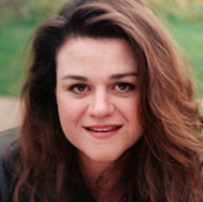

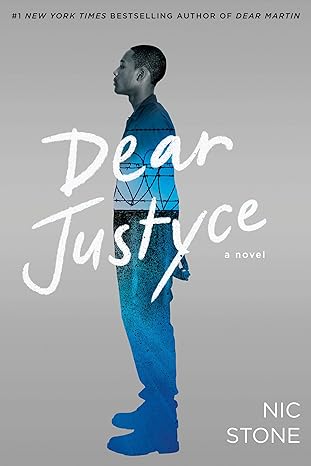
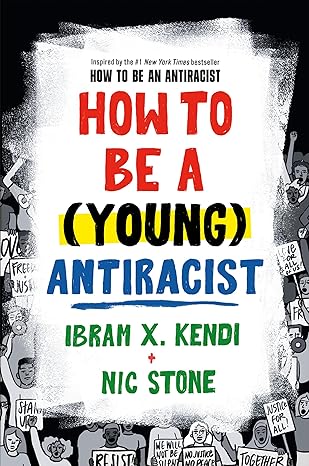
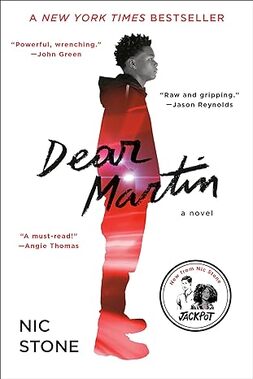
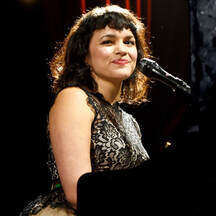
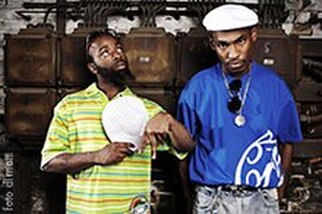

 RSS Feed
RSS Feed